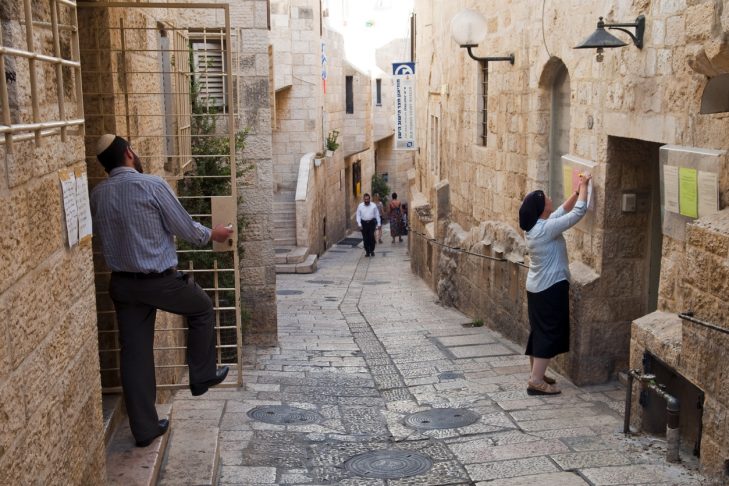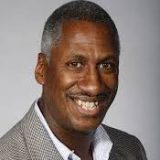“Pope Francis appeals for Israeli-Palestinian dialogue.” In the past, my ears would have been deaf to such a call as it just didn’t seem relevant to me. The Middle East was far, far from me and as far as I knew had little to do with my life in America. Then I started practicing Judaism, where I became a part of the Jewish community, but tried to stay far away from Israeli politics. I described myself as one who knew little about Israel and what I did know was probably wrong. As little as I knew about Jews and Israel, I knew even less about the Israeli-Palestinian situation.
With the support of my synagogue, Temple Beth Elohim, I recently had the opportunity to travel to Israel. Upon hearing that I was traveling to the West Bank, some of my Jewish friends wanted to make sure I heard “their” side of the story. It was as if I was going to talk to a few people and in a matter of hours would take a position on a proposed solution for something that has been going on for 70 years.
I often felt an underlying tension—if I was speaking to Palestinians, Jews were suspicious. As an American Christian, I do have a bond with Palestinian Christians, especially evangelical Palestinian Christians. Their approach to scripture, theology and praise and worship services seemed very familiar to me. When I mentioned to Palestinians that I was a member of a Jewish synagogue, it always felt awkward, like I was consorting with the enemy. I felt similar when talking to a Muslim imam—I understood his deep commitment to his faith and could empathize with the poor treatment he felt he received from the Israeli Defense Forces. Again, it felt awkward to say to him that I was part of a Jewish community. In terms of full disclosure, of my 16 days in Israel, I spent 14 with Israelis and two with Palestinians.
During my travels I was able to see a military outpost for the Iron Dome and I saw or heard Israeli fighter jets overhead. What I found emotionally unsettling was when my host family showed me my bedroom and pointed out it was in the bomb shelter! Suddenly, the Israeli-Palestinian conflict became real, as did the importance of Israeli security. For better or worse, this set the context for my trip.
As an American, I didn’t come to judge Israel or the Palestinians. I set out to speak with Palestinians who were Jewish, Christian and Muslim. I even spoke with Afro-Palestinians. I wanted to speak with Jews who were Ethiopian, Yemenite and Indian. I just wanted to “understand” the person I was talking to at that moment. I didn’t want to understand everything through the lens of the Israeli-Palestinian conflict.
I want to share a few moments that invoked in me an emotional response.
First, I talked to two mothers who were upset about the recent elections because they felt that if past is prologue, the people and policies of the new government would lead to violence and that would increase the chance that her children, currently serving in the army, would be put at risk. That is a type of universal feeling that I can understand.
Second, I spoke with a Indian-Muslim man in Jerusalem whose family owned an Indian hostel for several generations. The hostel had a health clinic where several generations had been born. The man showed me the birth certificates for three generations of family members: his grandfather, his father and himself. The first birth certificate for the grandfather listed “State of Palestine” as the place of birth, his father’s birth certificate said “Jordan” and his own said “Israel.” All three were born in the exact same health center in Jerusalem. For me, this made the dispute over land real.
Third, I really enjoyed learning about the Western Wall by looking at the exhibit at the Walled Off Hotel in Bethlehem, which included a short documentary, “5 Broken Cameras,” a first-hand account of life and nonviolent resistance in Bil’in, a West Bank village where Israel is building a security fence.
Fourth, an Israeli, upon hearing of my travels in the West Bank, asked me if I would share the pictures I took in the West Bank, as Israelis can’t travel freely to certain areas. As a foreigner, I can see parts of the country they can’t. Palestinian travel is also restricted in both the West Bank and Israel. I understand it is for security purposes. It is true there were sections of the United States where Black people were unwelcome, and thus the need for the “Green Book,” but “unwelcome” is not the same as “prohibited.” I felt the same way about some of Israel’s landmarks, such as the Cave of Machpelah or Ibrahimi Mosque in Hebron or the Temple Mount, as being divided. I can’t imagine a U.S. landmark divided that way; it’s unfortunate that these national treasures need to be divided and access restricted.
Fifth, I was surprised how everyone defines themselves as a persecuted minority. Israelis point out they are a tiny minority in the Middle East and that they are surrounded by enemies with thousands of rockets pointed at them. Orthodox Jews point out that they are only 3% of the population and the majority of Jews in Israel are secular; secular Jews or Jews practicing other denominations feel they are the ones discriminated against. And Jews of color point out how they are an oppressed minority because they are not Ashkenazi Jews. These viewpoints go on to encompass Arabs, Christian Palestinians, women and the LGBTQ+ community—on one hand, there is so much diversity, and on the other, discrimination.
One of my main takeaways is this: I believe people of faith and people of good will must work together for the common good. Change can occur.
In terms of my own spirituality, I’m trying to rise above the specific problems of the Abrahamic religions, including the Druze and Bahai. I desire to be friends and at peace with everyone. I don’t feel the need to choose sides but rather to expand the extent of my friendships across artificial boundaries. I have come to realize when I learn about others, I learn about myself in ways that help me become closer to God. That’s my goal in this lifetime.
This post has been contributed by a third party. The opinions, facts and any media content are presented solely by the author, and JewishBoston assumes no responsibility for them. Want to add your voice to the conversation? Publish your own post here. MORE



